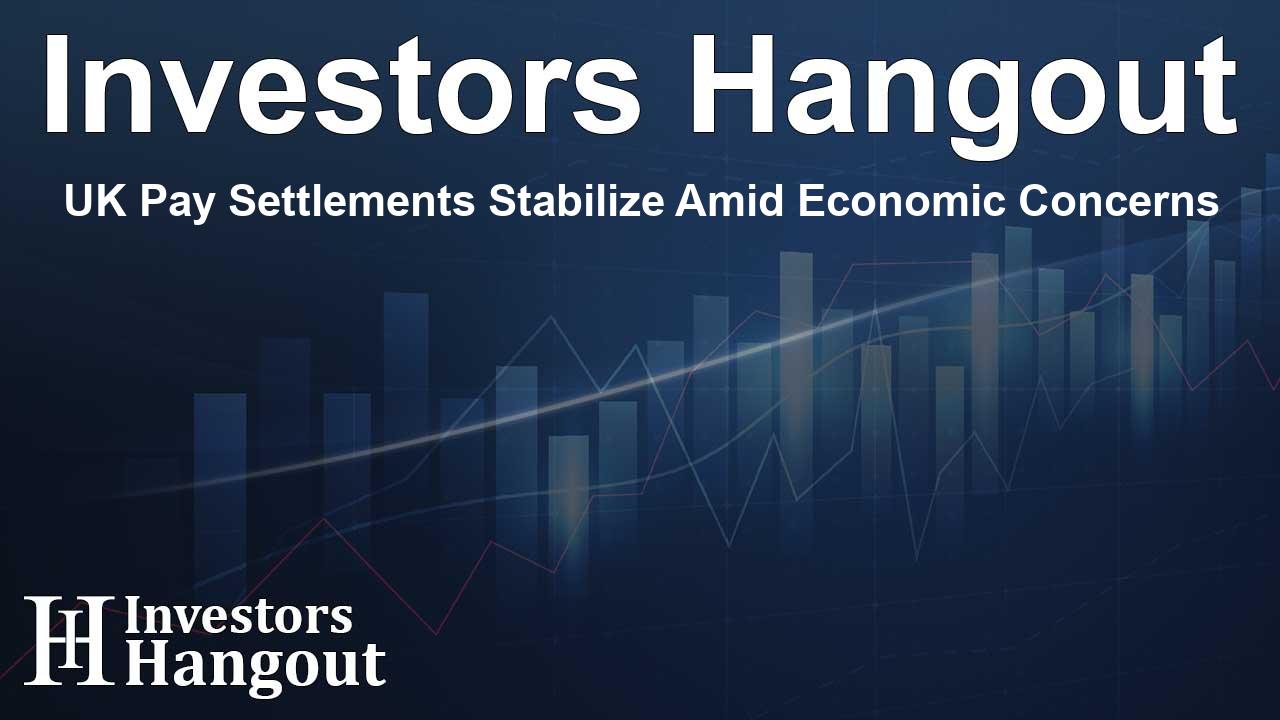UK Pay Settlements Stabilize Amid Economic Concerns

Current State of Pay Settlements in the UK
The landscape of pay settlements in the UK has recently been characterized by a notable plateau, with British employers reporting the lowest levels in two years up to August. This situation highlights critical insights for economic observers and the Bank of England as they assess future monetary policy decisions.
Key Findings from Recent Surveys
According to a survey conducted by Incomes Data Research, the median pay settlement among major employers has persisted at 4.0% for two consecutive months. This consistency offers a moment of stability in an otherwise fluctuating economic environment.
When breaking down the figures, the public sector's median pay settlements were recorded at 4.5%. This figure exceeds the private sector's 4.1%, indicating a shift in the dynamics between the two. As noted by Zoe Woolacott, a senior researcher at IDR, the contrasting outcomes between public and private sector pay reflect differing cycles in compensation. Currently, the public sector is in a 'catching-up' phase after a period during which its pay awards lagged behind those of the private sector.
Government Initiatives and Economic Impacts
The situation is further compounded by the actions of Finance Minister Rachel Reeves, who announced significant above-inflation pay increases totaling £9.4 billion for public sector employees, including teachers and doctors, shortly after the Labour Party’s recent parliamentary success. Such measures could have implications for inflation and economic growth, prompting the Bank of England to closely monitor wage trends.
Understanding Private Sector Wage Growth
Additionally, recent data indicated that private sector wage growth has cooled remarkably to a two-year low of 4.9% for the three months ending in July. This slowdown is an important trend for policymakers, as it may affect consumer spending and overall economic performance moving forward.
Future Expectations from the Bank of England
The Bank of England remains vigilant regarding wage growth patterns, anticipating that private-sector pay increases may taper down to approximately 3% by late 2025. This projection reveals cautious optimism in managing inflation and consumer confidence.
The Bigger Picture: Economic Outlook
In August, the Bank cut its central interest rate for the first time since 2020, optimizing it at 5% as of mid-September. Economists speculate that the bank might consider a further reduction of 0.25% at its upcoming meeting in November, depending on how various economic indicators, including wage settlements, unfold.
The IDR’s analysis, which informed these findings, covered 39 pay deals affecting over 740,000 employees between June 1 and August 31. Such comprehensive insights are crucial as they provide a clearer understanding of labor market trends and financial security for workers across the nation.
Frequently Asked Questions
What are the current median pay settlements in the UK?
The current median pay settlements in the UK stand at 4.0%, with public sector figures slightly higher at 4.5% compared to the private sector's 4.1%.
What factors are influencing the disparities between public and private sector pay?
The differences reflect a cycle where the public sector is currently attempting to catch up after a long phase of lagging behind private sector pay awards.
How has the government addressed public sector pay?
Finance Minister Rachel Reeves has announced substantial pay increases worth £9.4 billion for public sector workers shortly after recent elections.
What is the Bank of England's outlook on wage growth?
The Bank is monitoring wage growth carefully and forecasts a slowdown in private sector pay to about 3% by late 2025.
How many workers are covered by the IDR’s pay settlement analysis?
The IDR’s analysis encompasses 39 pay deals affecting more than 740,000 workers across the UK.
About Investors Hangout
Investors Hangout is a leading online stock forum for financial discussion and learning, offering a wide range of free tools and resources. It draws in traders of all levels, who exchange market knowledge, investigate trading tactics, and keep an eye on industry developments in real time. Featuring financial articles, stock message boards, quotes, charts, company profiles, and live news updates. Through cooperative learning and a wealth of informational resources, it helps users from novices creating their first portfolios to experts honing their techniques. Join Investors Hangout today: https://investorshangout.com/
Disclaimer: The content of this article is solely for general informational purposes only; it does not represent legal, financial, or investment advice. Investors Hangout does not offer financial advice; the author is not a licensed financial advisor. Consult a qualified advisor before making any financial or investment decisions based on this article. The author's interpretation of publicly available data shapes the opinions presented here; as a result, they should not be taken as advice to purchase, sell, or hold any securities mentioned or any other investments. The author does not guarantee the accuracy, completeness, or timeliness of any material, providing it "as is." Information and market conditions may change; past performance is not indicative of future outcomes. If any of the material offered here is inaccurate, please contact us for corrections.